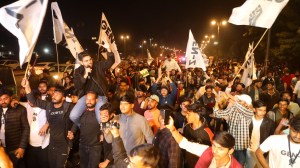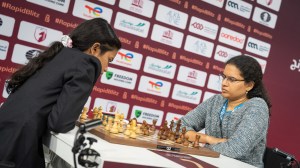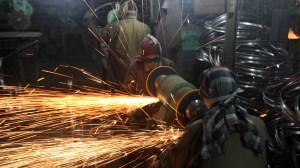Save lives, not laws
There is understandable moral indignation at the kidney racket.

There is understandable moral indignation at the kidney racket. The Centre has promised a CBI inquiry. The Indian Medical Association IMA seems to want one too. The health minister has promised an amendment to the Transplantation of Human Organs Act THOA of 1994 in the budget session. According to media reports, the amendment will increase punishments for those indulging in illegal trade and make THOA simpler. To quote the minister, 8220;A major mass-media campaign will soon be organised in the country to bring about a behavioural change so that people are willing to donate organs.8221; Organ transplants aren8217;t about kidneys alone, there can be transplants of livers, hearts, lungs, pancreases, small bowels and even skin. Transplants save lives, and advances in medical technology and drugs like cyclosporine in the 1970s have made the acceptance of foreign objects easier. IMA estimates India has 200,000 patients 80,000 renal who need organs, not just kidneys. Add to that foreign demand, since organ transplants have become difficult in developed countries.
But donation is problematic. Partly because of Western and WHO pressure, spliced with reports in the late 1980s and early 1990s that
India and China had become the kidney transplant centres of the world, we had the Transplantation of Human Organs Act. Perhaps one should quote Anatole France 8212; 8220;the Law, in its majestic equality, forbids the rich, as well as the poor, to sleep under the bridges, to beg in the streets, and to steal bread.8221; THOA banned all commercial transactions involving organs. It only allowed organs to be removed from brain-stem dead people, that is, cadavers. Incidentally, these brain-stem dead people are still 8220;alive8221; on life support systems. That makes it even more difficult to find donors. THOA only allowed donations by relatives, that is, spouse, son, daughter, father, mother, brother or sister. And since organs couldn8217;t be donated to anyone outside the immediate family, foreign recipients were effectively prohibited. Note that spouse isn8217;t a blood relationship, and marriages catering to transplant needs can8217;t be precluded. On medical grounds, near relatives may also not be accepted as donors. The authorisation committee can clear other cases, but that8217;s not easy.
So who does the minister have in mind when he talks about mass-media campaigns? Near relatives, who probably don8217;t need such campaigns at all? Or does the minister mean cadavers and prospective cadavers? Note that infrastructure for cadaver transplants is appalling, even more so in a hot climate. IMA estimates that only 4,000 patients are able to get donors. This presumably means the legitimate route. So what happens to the remaining 196,000?
Some part of this unmet demand certainly filters through to the illegal market. That8217;s inevitable, when one creates a mismatch between supply and demand through legislation that runs counter to market rules. If one doesn8217;t want to cite centrally planned economies of East Europe, there is the shortage economy of pre-1991 India. Laws counter to common sense will be violated. The more one tightens THOA in the budget session, the more the market will be driven underground. Enforcement is easiest when the law makes sense and is, therefore, almost self-enforcing. Nonsensical law is impossible to enforce. That proposition is almost tautological. If a market is driven underground, it increases transaction costs, because it becomes unorganised. An unorganised market implies lack of efficient information flows, higher prices, a long chain of intermediaries read brokers and operations performed not by trained doctors, but by quacks, with adverse health implications for both donors and recipients. Not very different from what happens when abortion is illegal.
Because the market is illegal and unorganised, we don8217;t quite know the payments involved and one has to be extremely naive to assume there are no monetary transactions simply because the law prohibits it. Donors seem to have been paid between Rs 40,000 and 1 lakh. Recipients seem to have paid around Rs 10 lakh, of which, at least Rs 6 lakh must have been the cost of the kidney, cheap for those who can afford it, and weigh it against recurrent costs of dialysis. That is a substantial gap between the price received by donor and the price paid by recipient and intermediation is a major explanatory factor. We may have forgotten but there was another kidney scandal in January 1995, in Delhi, Chennai and Mumbai, also involving what might be called kidney transplant tourism. THOA didn8217;t succeed in preventing this. Instead of controlling and banning organ transplants, the government would have been far better off and donors and recipients too had one tried to regulate it, by allowing non-related donor transplants, not just cadavers, and even commercialisation and foreign recipients. Had that been done, we might have been able to throw in insurance for donors, most of whom are poor. When THOA was enacted, the Kidney Patients Welfare Association actually opposed it.
Instead we had a ban and bans only increase corruption. As Tacitus said, the more corrupt a country, the more the number of laws it has. There is a further complication: health is a state subject and there is no reason for a state to necessarily adopt THOA. When THOA was first enacted, it was accepted in Goa, Himachal Pradesh, Maharashtra and UTs. I don8217;t quite know which states have now accepted THOA, but certainly some southern states are outside its ambit. All that happens is that the illegal market moves to these states, including the possibility of donors temporarily migrating.
I suspect budget session amendments to THOA will increase fines and terms of imprisonment. That was the kind of attempt undertaken when Essential Commodities Act created artificial shortages. Eventually, we recognised that if legislation created the shortage, the best course was to increase supply by amending the offensive law. Ditto for FERA Foreign Exchange Regulation Act and assorted economic legislation. Had that realisation not sunk in, we wouldn8217;t have introduced liberalisation. That is what we ought to do with THOA 8212; relax it, rather than tighten it. Since the health minister understands smoking metaphors better that8217;s all he seems to be interested in, organ transplants aren8217;t injurious to health. However, THOA is injurious to health.
The writer is a noted economist bdebroygmail.com
- 01
- 02
- 03
- 04
- 05































